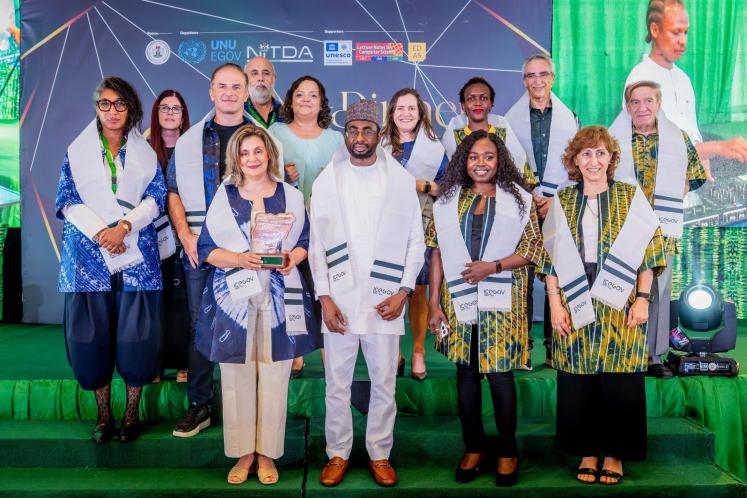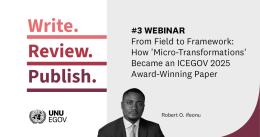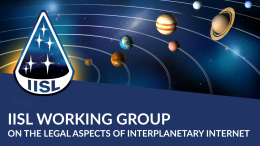The 18th edition of the International Conference on Theory and Practice of Electronic Governance (ICEGOV) concludes today in Abuja, Nigeria, after four days of intensive knowledge sharing, debate, and practical exchange.
The conference brought together scholars, policymakers, government officials, international organizations, industry leaders, and civil society actors from across the world to explore how cooperation and innovation can shape a more inclusive and people-centred digital future.
Held under the theme “Shaping the Future of Digital Governance through Cooperation, Innovation, and Inclusion”, ICEGOV 2025 placed a strong spotlight on Africa’s growing momentum in digital public transformation and its strategic role in advancing global digital governance.
Through plenary sessions, policy dialogues, workshops, and research presentations, participants exchanged perspectives and experiences aimed at accelerating progress towards more transparent, inclusive, and sustainable digital governance systems.
In his opening keynote, Tshilidzi Marwala, Rector of the United Nations University and United Nations Under-Secretary-General, called for the responsible and inclusive development of artificial intelligence (AI), emphasizing that technology must “work equally for all people, including Africans” if it is to achieve its full potential as a tool for global progress.
Artificial intelligence is shaping many areas of our lives, but it must be designed so that it does not leave anyone behind. AI will remain suboptimal until it works equally for all people, including the people of Nigeria and, by extension, the African continent.
Marwala noted that advancing AI requires a careful balance between transparency and security, innovation and accountability. He added that “the democratization of AI means not only that people can freely use AI, but also that they can collectively decide how it should be used.” Marwala concluded by urging leaders and technologists to view AI as “a moral responsibility that demands cooperation across nations to ensure technology strengthens humanity rather than divides it.”
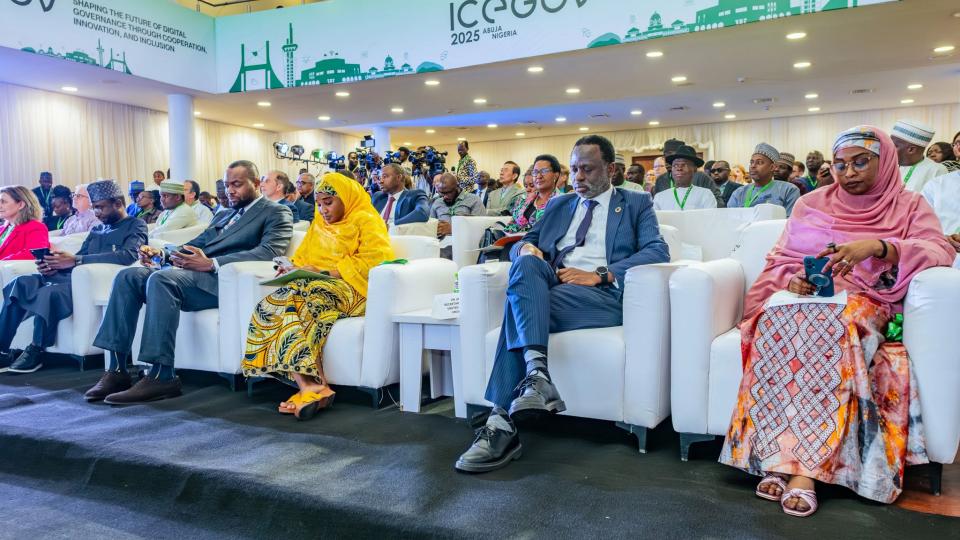
Also speaking at the Opening Ceremony, Bosun Tijani, Minister of Communications, Innovation and Digital Economy of the Federal Republic of Nigeria, highlighted that digital innovation must be grounded in ethics, research, and inclusion.
Nigeria stands at the intersection of innovation, youth, and digital transformation. The state of a society reflects the ideas that dominate it. When good ideas take hold, nations prosper; when bad ideas prevail, nations decline.
Tijani introduced the “Source Balance Ratio model”, underscoring the importance of contributions from government, academia, civil society, and the private sector in designing effective public policy. He also emphasized that policymaking must be research-driven and that platforms like ICEGOV play a crucial role in ensuring that innovation serves the public good.
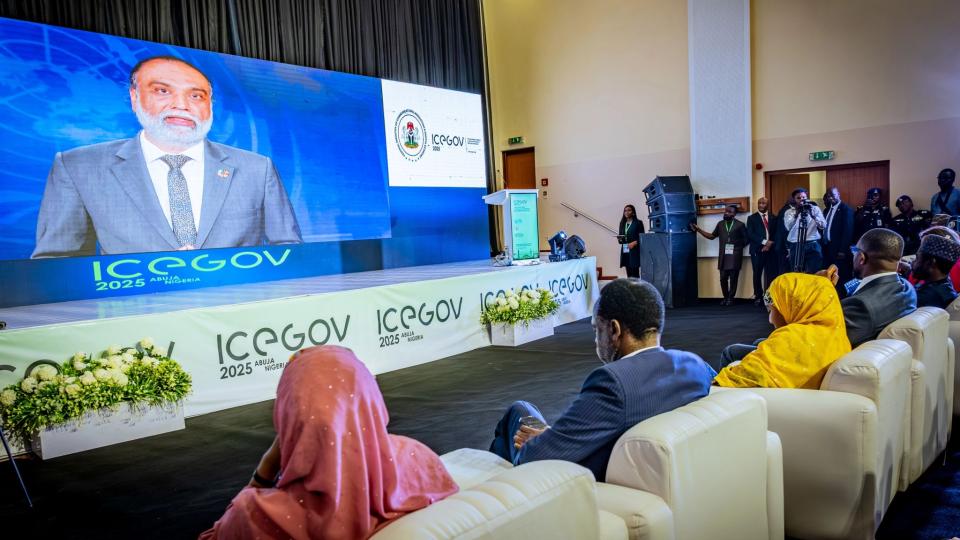
At the Opening Ceremony, a special message was delivered via video by Amandeep Singh Gill, Under-Secretary-General and Special Envoy for Digital and Emerging Technologies, who emphasized that the commitments made under the Global Digital Compact (GDC) are already having an impact in practice.
Gill also underlined that, for the first time, all countries have agreed to create standing global mechanisms for the governance of AI. This shift from high-level principles to operational cooperation signals that multilateralism can still deliver concrete results. During this year’s High-Level Week, the Secretary-General opened nominations for an independent international scientific panel on AI, while Member States also agreed to establish an annual global dialogue on AI governance within the UN.
This dialogue will meet in Geneva and New York, bringing together all 193 Member States alongside industries, civil society, and scientists. Its purpose? To foster interoperability, reduce fragmentation, and ensure that AI governance reflects the diversity of humanity, not just the voices of a few.
He concluded by calling on participants in ICEGOV to translate global commitments into local action: “Let’s leave here with outcomes that reflect our shared commitment to shaping a digital future based on cooperation, innovation, and inclusion.”
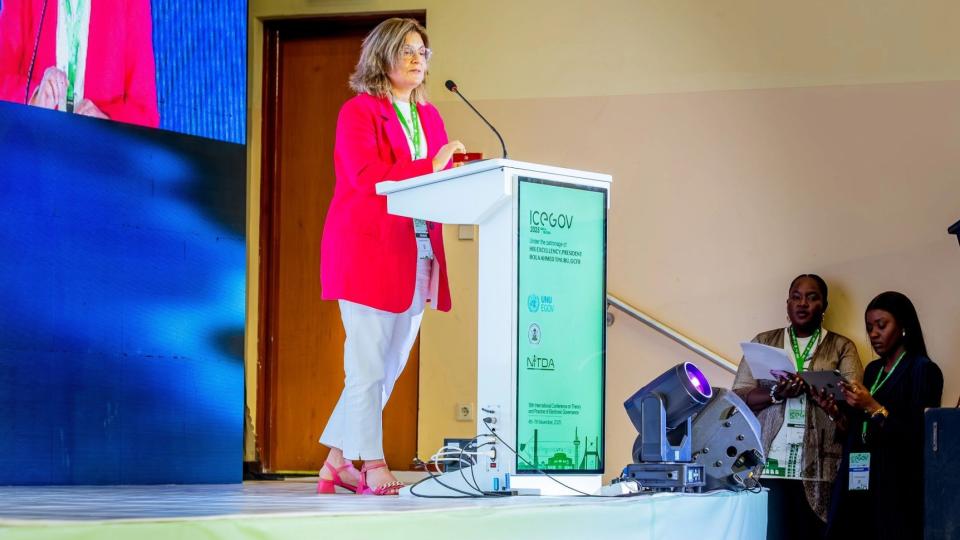
In her address at the Opening, Delfina Soares, Director of UNU-EGOV, highlighted that hosting ICEGOV 2025 in Africa’s most populous nation carries both symbolic and practical importance, placing Nigeria and the continent at the heart of the global dialogue on digital governance.
Hosting ICEGOV in Nigeria sends a clear message: we recognize that digital governance must be inclusive of Africa, not just as an object of study, but as a partner, a driver, and a source of innovation
Reflecting on ICEGOV’s journey since its inception in 2007, Soares noted that the series has become a major hub for interdisciplinary exchange on the theory and practice of digital governance, gathering more than 6,000 participants and 1,500 published papers from over 90 nationalities. She emphasized that while the conference builds on this legacy, it must also renew its mission in light of new challenges, contexts, and voices. “We must move beyond silos,” she said, urging closer cooperation across governments, academia, civil society, and the private sector to address the shared challenges of the digital age.
The Director framed her remarks around the three pillars of this year’s theme (cooperation, innovation, and inclusion), stressing that effective digital governance must be co-designed, locally grounded, and people-centred. “If innovation and cooperation leave people behind, we risk reinforcing inequalities,” she reminded.
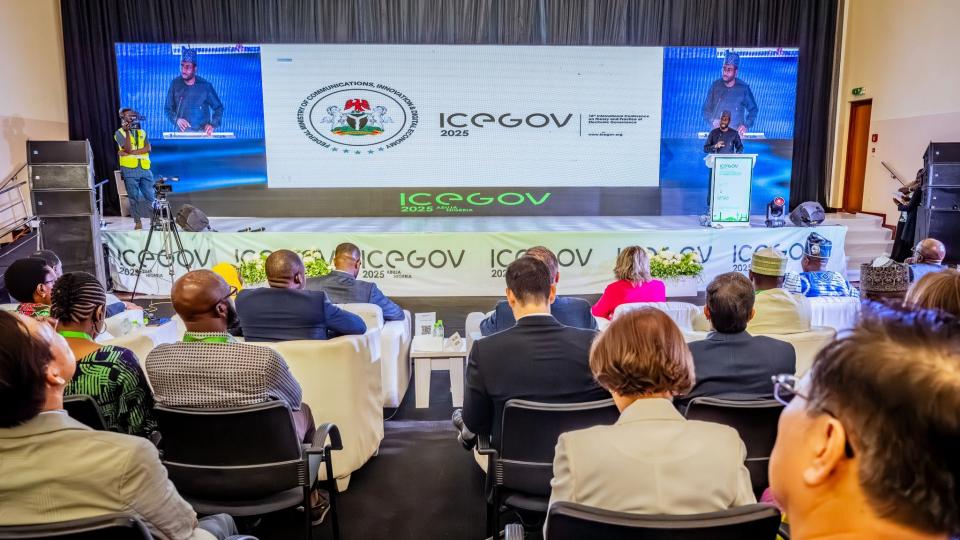
The host, Director-General of the National Information Technology Development Agency (NITDA), Kashifu Inuwa Abdullahi, highlighted that
Digital transformation is not just about technology. It is about improving how we serve our citizens. Governance must meet people where they are, and today, they are online.
In his address, Inuwa described ICEGOV 2025 as “a remarkable milestone in Nigeria’s journey toward becoming a digital governance powerhouse.” He highlighted several national initiatives advancing this vision, including the National Digital Literacy Framework, the training of more than 24,000 public servants in digital skills, and the 3 Million Technical Talent (3MTT) programme, which aims to prepare citizens for globally relevant digital work. He also referred to ongoing investments in Digital Public Infrastructure, including a national data exchange platform and a Centre of Excellence for DPI.

